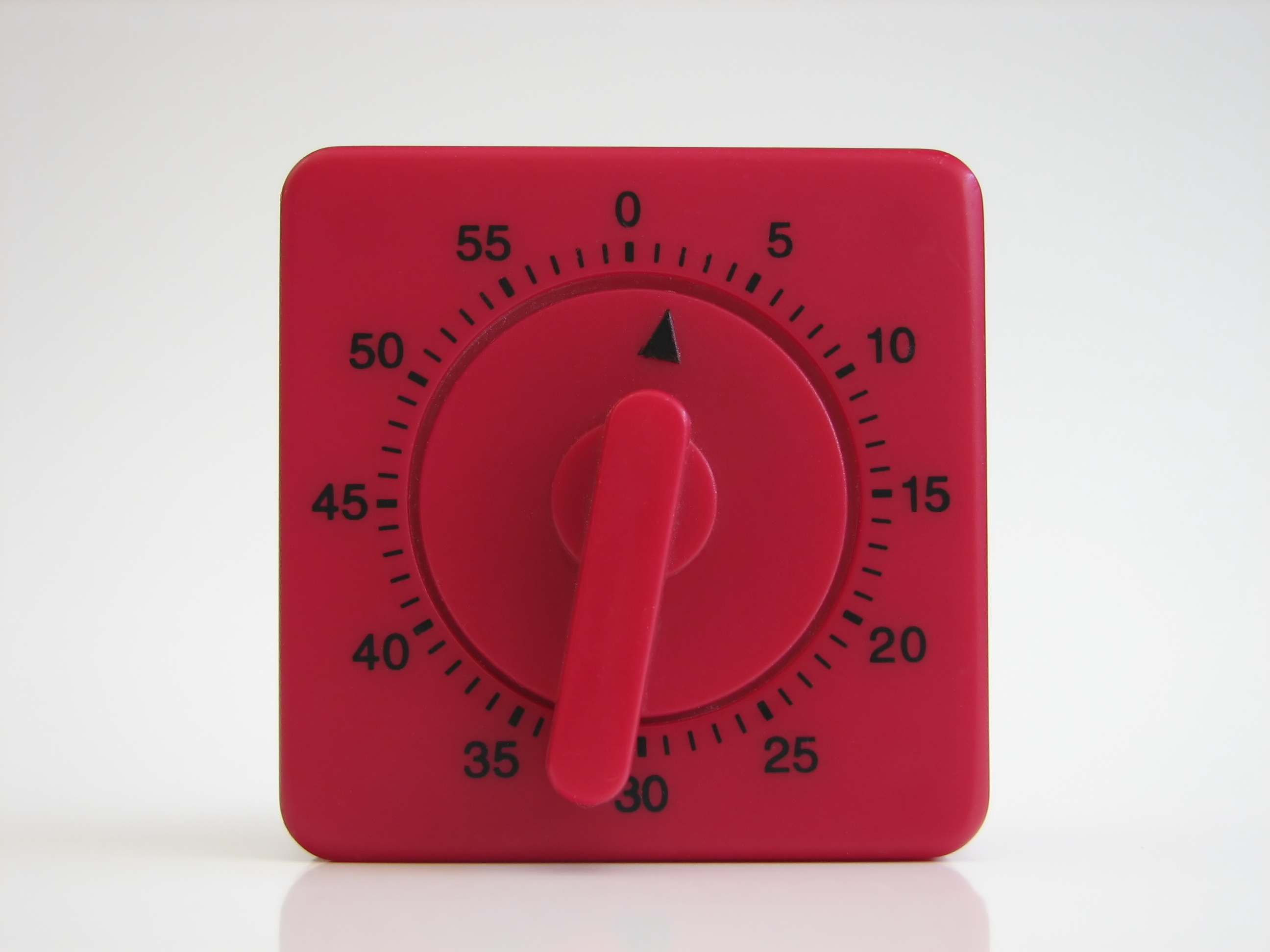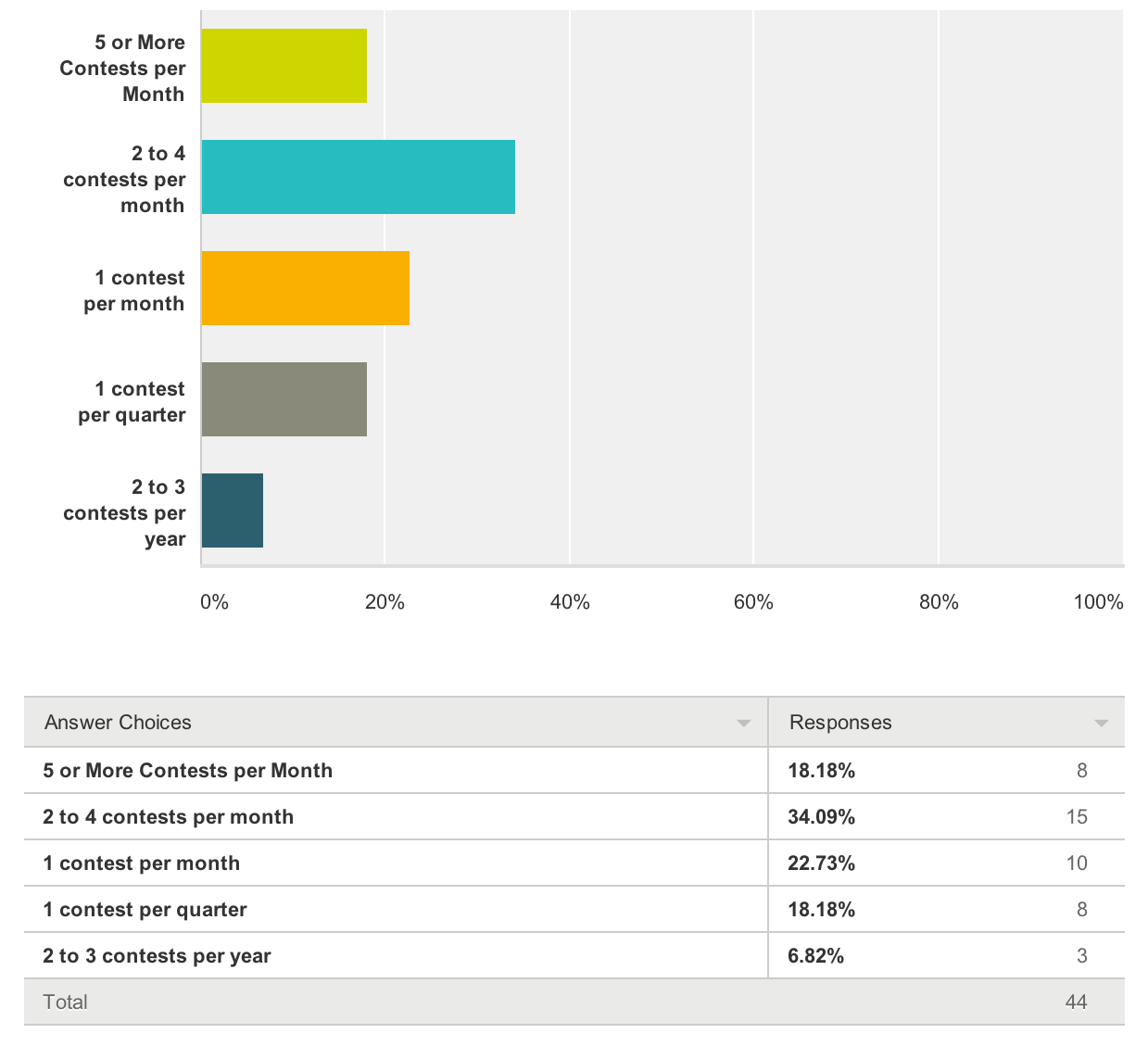
Weight loss ads surround us, most of which insist a product – developed based on a scientific formula, of course – can melt away pounds and check off resolutions. The best part? The formula works for everyone. Or so the commercials say.
We’re sorry to admit that one magic formula for designing perfect sales contests has yet to be discovered. At least not one that works for everyone. Different competition formats motivate every team…well, differently. And often, experience teaches what format works best for you and your team.
The good news? Certain general contest guidelines do tend to make your contests more effective; follow them, and you can come up with a formula that does work for your individual company quicker than you would have otherwise.
Here are those guidelines that apply to sales contest timing, so you can get that part of your formula down first:
1. Typically, long contests = lost motivation.
It’s best to take advantage of sales reps’ natural sense of urgency by running contests in smaller timeframes, which occur in one-hour intervals at the short end and one-month intervals at the long end. This will keep your team rallied and focused.
One-hour competitions can be great for prospecting. We recommend running what we call “Power Hours,” which center around cold calling and give sales reps one point for every call and three points for every meeting booked. These competitions can be effective as often as you’d like and even daily. They can be especially motivating when one sales incentive, such as a funny figurine, is passed along after each contest to the winner, who will proudly display that figurine on their desk for the day (or until the next Power Hour).
In terms of monthly contests, these actually tend to be most popular – at least among our 120+ clients. If you choose these longer contests, you obviously have more time to dig in deeper and motivate even more behaviors, but you need to still make sure to keep each contest simple. Complicated contest rules almost always drop participant engagement levels. (Get a free checklist to find out how else you can keep sales contests engaging.)
So, what if you do want to run contests for longer than a month? Just make those the exception. And consider using techniques like the “parent contest” format, which involves running mini (“child”) competitions around activities that funnel up into one over-arching competition. For example, if you want to run a quarterly contest around deals closed, also launch monthly competitions that track percentage to goal. That way, you’re still tracking activities and keeping your team engaged day to day, as you work toward that one quarterly goal.
2. Time between contests can = engagement… but so can other components of your formula.
It’s important to keep competitions fresh, and that may mean taking minor breaks in between them. We see clients break for days, weeks or months. Forty-four of them told us how often they go live with competitions, and the majority run two to four a month.
We realize 44 isn’t a huge sample, but figured the data was worth sharing since the majority of these clients do have their own individual contest formula down. Here’s what the response looked like:

Those clients who run contests more consecutively (with smaller breaks in between) find other ways to keep things interesting. They simply switch up the behaviors motivated, theme of the competition or incentives offered more often.
When it comes down to it, sales contest timing isn’t complicated. You don’t need to walk away from this with certain timeframes stamped in your head; just remember these two rules:
1. Promote engagement by running most competitions in short bursts, or with the once-in-awhile longer contests, leveraging concepts like the parent/child format.
2. Keep competitions fresh, whether by breaking in between or switching up incentives, behaviors and themes.
Okay, now that you’ve got that down, might as well get the rest of your competition questions answered, so you can keep working on that formula; get the free eBook: Your Top 5 Questions on Sales Gamification.




This is true. My most productive contest is my 3-hour call night for setting appointments. My monthly contests get a burst of activity the first few days then the last week of the contest.